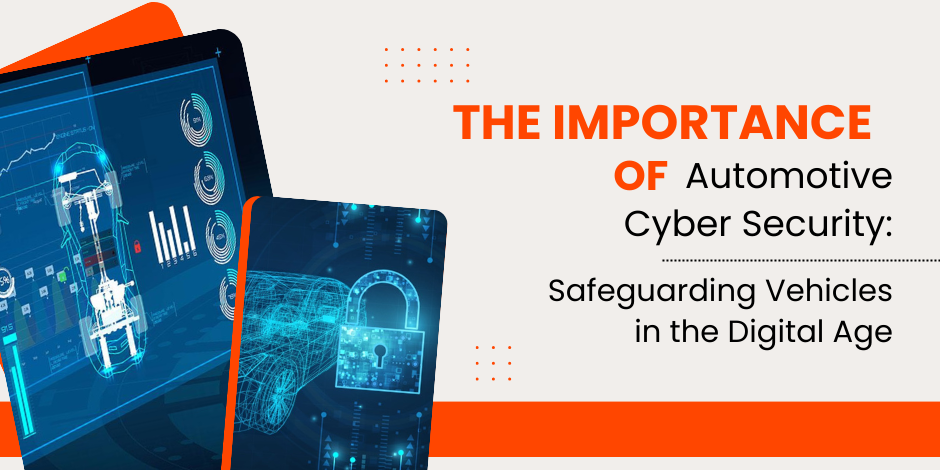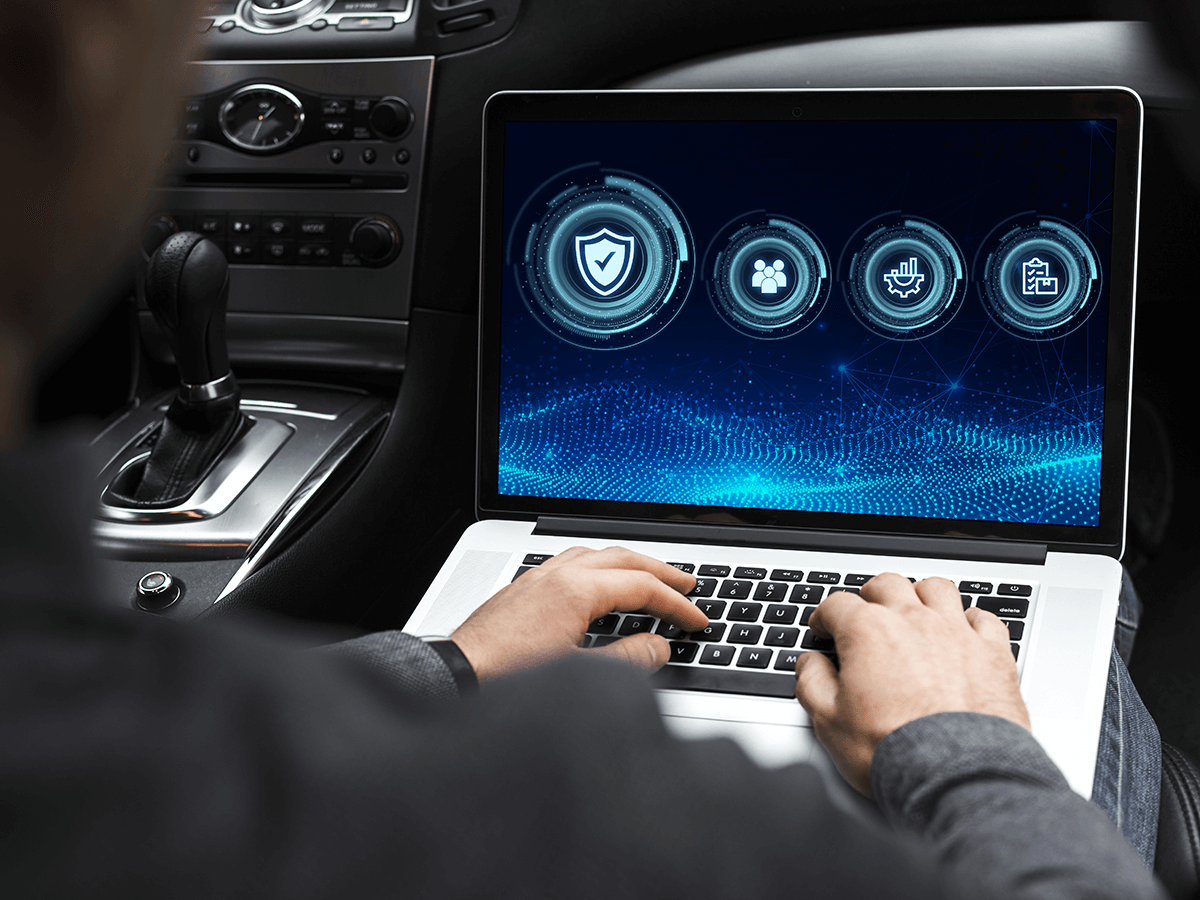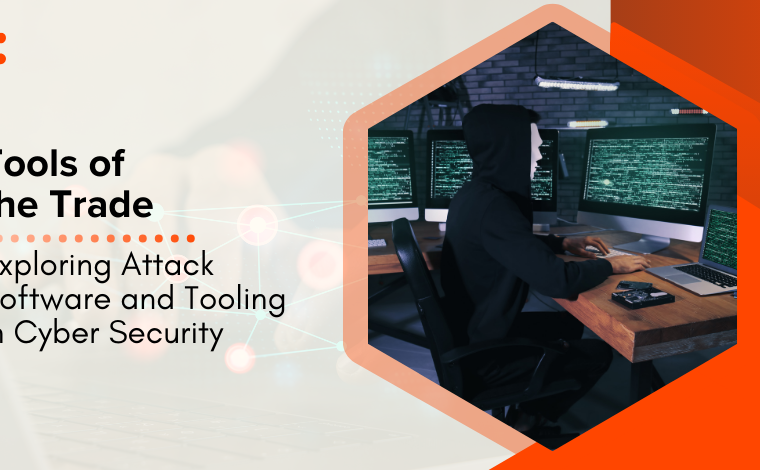The Importance of Automotive Cyber Security: Safeguarding Vehicles in the Digital Age

Stay Informed With Our Weekly Newsletter
Receive crucial updates on the ever-evolving landscape of technology and innovation.
In today’s digital age, where technology is deeply entwined with every aspect of our lives, it is crucial to recognise the importance of automotive cyber security.
As vehicles become increasingly connected and reliant on technology, they become vulnerable to cyber attacks. Let’s explore this in more detail.
Understanding the concept of automotive cyber security

Automotive cyber security focuses on safeguarding vehicles from cyber threats such as hacking, malware, and unauthorised access.
Key terms and concepts include encryption, authentication, intrusion detection systems, and secure communication protocols.
By implementing these measures, manufacturers can ensure the safety and security of vehicles and their occupants.
In today’s digital age, where technology plays an integral role in our daily lives, it is no surprise that the automotive industry has embraced the advancements in connectivity.
From GPS navigation systems to in-car entertainment, vehicles have become more than just a means of transportation.
They have transformed into mobile computers on wheels, with complex software systems that control various aspects of the vehicle’s functionality.
However, with this increased connectivity comes a new set of challenges.
As vehicles become more connected, they become vulnerable to cyber threats.
Hackers, with their malicious intent, can exploit vulnerabilities in these interconnected systems, potentially compromising the vehicle’s and its occupants’ safety and security.
The importance of encryption
One of the key measures in automotive cyber security is encryption.
Encryption involves encoding information that can only be decoded by authorised parties.
By encrypting data transmitted between different components of the vehicle’s system, manufacturers can ensure that even if hackers intercept the communication, they cannot make sense of the data.
The importance of authentication
Authentication is another crucial aspect of automotive cyber security.
It involves verifying the identity of users or devices before granting them access to the vehicle’s systems.
This can be done through various means, such as passwords, biometrics, or digital certificates.
By implementing robust authentication mechanisms, manufacturers can prevent unauthorised access to the vehicle’s sensitive systems.
The importance of intrusion detection systems
Intrusion detection systems are also an essential component of automotive cyber security.
These systems monitor the vehicle’s network and detect any suspicious activity or attempts to breach the system.
By continuously monitoring for anomalies, manufacturers can identify potential cyber threats and take appropriate action to mitigate them.
The importance of secure communication protocols.
Secure communication protocols are vital in ensuring the integrity and confidentiality of data transmitted within the vehicle’s network.
These protocols establish a secure channel for communication, preventing unauthorised parties from intercepting or tampering with the data.
By using secure communication protocols, manufacturers can protect sensitive information, such as GPS coordinates or personal data, from falling into the wrong hands.
The current state of automotive cyber security

With the rise of connected vehicles, the automotive industry faces unprecedented challenges in cyber security.
Connected vehicles are equipped with internet connectivity, allowing them to communicate with other vehicles and infrastructure.
While this connectivity enhances convenience and safety, it also exposes vehicles to potential cyber attacks.
The threat landscape in the automotive industry is constantly evolving, with hackers continually seeking vulnerabilities to exploit.
In recent years, there have been several high-profile incidents that have highlighted the vulnerabilities of connected vehicles.
One such incident involved a group of researchers remotely hacking into a vehicle’s systems and taking control of its steering and braking.
This demonstration sent shockwaves through the industry, forcing automakers to look closer at their cyber security measures.
Automotive cyber security is a complex and multifaceted issue that requires a holistic approach.
It involves securing the vehicle’s internal systems and protecting the communication channels between vehicles and infrastructure.
One of the key challenges in automotive cyber security is the sheer number of components and systems that make up a modern vehicle.
Securing these components requires a combination of hardware and software measures, such as encryption, authentication, and intrusion detection systems.
Another challenge is the increasing complexity of automotive software.
Modern vehicles are equipped with hundreds of millions of lines of code, making them more susceptible to software vulnerabilities.
Automakers are investing heavily in software security, implementing secure coding practices and conducting rigorous testing to identify and patch vulnerabilities before they can be exploited.
Collaboration is also crucial in addressing the automotive industry’s cyber security challenges.
Automakers, suppliers, and government agencies must collaborate to share information and best practices and establish industry-wide standards for cyber security.
This collaboration extends beyond national borders, as cyber threats are global and require a coordinated international response.
Looking ahead, the future of automotive cyber security will be shaped by emerging technologies such as autonomous vehicles and the Internet of Things.
As vehicles become increasingly autonomous and interconnected, the attack surface for hackers will expand, requiring even more robust cyber security measures.
The industry must stay vigilant and adapt to these evolving threats to ensure the safety and security of connected vehicles.
The potential risks and consequences of automotive cyber attacks

Automotive cyber attacks can have far-reaching consequences, posing personal safety and data security risks.
Personal data breaches are a significant concern, as modern vehicles store personal information such as GPS data, contact details, and even health information.
A breach of this information can lead to identity theft and compromise individual privacy.
The role of manufacturers in automotive cyber security
Manufacturers play a crucial role in ensuring automotive cyber security.
By building security into vehicle design, they can create robust systems more resilient to cyber attacks.
This includes implementing secure communication protocols, encrypting data, and using authentication mechanisms to verify system integrity.
Additionally, manufacturers must provide ongoing software updates and patches to address newly discovered vulnerabilities and protect vehicles.
Government regulations and standards for automotive cyber security
Recognising the importance of automotive cyber security, governments worldwide have introduced regulations and standards to protect vehicles and consumers.
Existing regulations vary by country, but they generally aim to ensure that manufacturers adhere to minimum security standards and prioritise the safety of vehicles.
These regulations also impose consequences for non-compliance, encouraging manufacturers to take automotive cyber security seriously.
Conclusion
Automotive cyber security is paramount in today’s digital age.
With vehicles becoming increasingly connected, it is vital to safeguard them from cyber attacks that can compromise personal safety and data security.
Manufacturers, governments, and consumers must work together to prioritise automotive cyber security and ensure the safety and security of vehicles in the digital age.
Are you new to cyber security or want to transition into the field?
The Institute of Data’s Cyber Security program offers practical training for upskilling or entering into the cyber security industry.
Choose us as your learning partner to enhance your expertise in this critical and growing field.
Want to learn more about our programs? Contact our local team for a free career consultation today.





